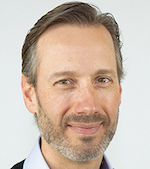 Richard Williams Richard Williams |
While the COVID-19 pandemic has caused turmoil and disruption for many industries, it’s no secret that the travel and hospitality sector has been one of the most impacted, with estimates of more than $900 billion in losses reported in the U.S. alone.
On the heels of virtually no travel during the months of April and May, as the country begins to open back up this summer, Americans are already starting to consider venturing out, and bookings for late summer and early fall are seeing increased numbers according to airlines and hotels.
For that trend to continue, people need to feel safe about the way they travel and places they visit and stay, which is why those in the hospitality industry are implementing stricter sanitation efforts in all facets of their business protocols. Under guidance from the World Health Organization and U.S. Centers for Disease Control and Prevention, many airlines, hotels, resorts and attractions are undertaking increased safety measures to help reduce the risk of infection towards workers and patrons.
Hotels lead charge with hygiene officers
As demand for rooms rises, those in the hotel industry are trying to reassure potential guests that they’ve put additional measures in place to protect against coronavirus transmission and welcoming guests back with open arms.
| This article is featured in O'Dwyer's Jul. '20 Travel & Int'l PR Magazine. |
Take Marriott International for example. As the third largest hotel chain in the world, with more than 7,300 properties and 1.3 million hotel rooms, the company has beefed up its efforts on cleanliness, hygiene and social distancing to ensure guests that their safety and well-being is of chief importance. Marriott has begun rolling electrostatic sprayers with hospital-grade disinfectant to sanitize surfaces at all locations.
Then there’s Four Seasons Hotels and Resorts, which last month entered into a partnership with Johns Hopkins Medicine International, to validate its new global health and safety program, Lead With Care, and provide ongoing, real-time guidance on the evolving COVID-19 situation.
Additionally, each Four Seasons property will appoint a hygiene officer focused on implementing enhancements to its already stringent procedures. This includes disinfecting rooms daily with U.S. Environmental Protection Agency-approved products and will have blacklight inspection by room attendants; focusing on retraining programs for housekeeping teams on all cleaning protocols are being implemented across the portfolio; and cleaning public areas hourly with extra attention to frequented areas, including front-desk counters and public restrooms.
Communicating cleanliness as safety measure
It’s not just the hotels committed to doing more. Most airlines are following and even exceeding in most cases, guidance from the CDC to help contain and stop the spread of the coronavirus, bringing in new layers of protection to help protect passengers throughout their journey.
JetBlue has increased its aircraft cleaning and is utilizing disinfectant that’s effective against coronavirus across frequently touched surfaces, such as tray tables, seat covers, armrests and seatbelts. Additionally, common surfaces in airport terminals are also frequently disinfected with hospital-grade disinfectant.
Meanwhile, Virgin Atlantic has implemented new guidelines requiring planes to be cleaned after each and every flight using a high-grade registered disinfecting product that has been tested to be effective against viruses. Cleaning teams board prior to each flight and complete a rigorous checklist for cabin cleanliness including disinfecting cabin surfaces and customer contact areas such as seats, seatback pockets, door handles, tray tables, inflight entertainment screens and floors.
All of this technology used by these companies offer the highest classification of disinfectants recommended by the Centers for Disease Control and Prevention and World Health Organization to treat known pathogens.
Quantifying cleanliness to staff, customers
That’s where Hygiena comes in, offering rapid cleaning verification solutions to the hospitality industry, utilizing advanced technologies and patented designs with rapid, accurate, dependable and affordable test platforms. Hygiena helps travel and tourism companies find solutions and levels of cleanliness that’s demanded in this new COVID-19 normal.
In order for travel to return to customary numbers, those in the hospitality industry need to restore consumer confidence through their innovative cleaning processes and sanitation protocols.
For instance, hotels and resorts have naturally increased their cleanliness and sanitizing processes but common areas such as restrooms, doorknobs, and other highly used places of contact are still a concern for travelers. Although surfaces may look clean, how do you know they are clean? Microbes are tiny and undetectable without a microscope. That’s where ATP monitoring can help by quantifying your cleaning efforts and helping you define “clean.” Best of all, it’s quick and simple and can provide an answer in 15 seconds.
ATP monitoring works using bioluminescence to produce a Relative Light Unit, which can tell you how much organic matter is present on a surface. All organic matter, like mucus, saliva and food particles contain energy stored in the form of an ATP molecule. To test a surface for cleanliness a sample is collected using Hygiena’s patented Snap-Valve ATP swab. After the sample is collected, the snap-valve is broken, and the patented eco-friendly chemistry is mixed with the collected sample and read by the luminometer. If an ATP molecule (aka organic matter) is present in the sample, then it will glow, producing an RLU on the luminometer. That RLU quantifies the cleanliness of the surface. Hygiena’s system offers both surface and water tests to ensure hygienically clean environments.
This will keep germs out and instill more confidence among staff, guests and the hotels and resorts themselves.
Let’s face it, COVID-19 has changed all facets of the way we live, work and travel, and for the hospitality industry to recover completely, it’s going to take a high level of commitment and care to be actively communicated with transparency to all industry staff, passengers and guests.
***
Richard Williams is global marketing manager of Hygiena.


 Weber Shandwick is providing PR and marketing communications services to the Moroccan National Tourist Office in New York.
Weber Shandwick is providing PR and marketing communications services to the Moroccan National Tourist Office in New York.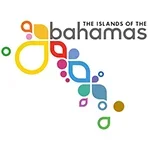 Finn Partners has filed its six-month contract with the Bahamas Ministry of Tourism, Investments & Aviation, which is worth $240K.
Finn Partners has filed its six-month contract with the Bahamas Ministry of Tourism, Investments & Aviation, which is worth $240K.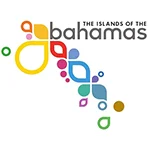 Weber Shandwick wrapped up its work for the Ministry of Bahamas at the end of 2023.
Weber Shandwick wrapped up its work for the Ministry of Bahamas at the end of 2023.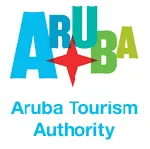 The Aruba Tourism Authority is boosting its budget 29.4 percent to $2.2M at Zeno Group, according to its 2024 contract, effective Jan. 1.
The Aruba Tourism Authority is boosting its budget 29.4 percent to $2.2M at Zeno Group, according to its 2024 contract, effective Jan. 1.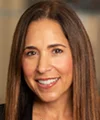 As inflation continues to impact spending, consumers are revisiting their list of what they’re willing to spend more of their money on. Luckily for those in the travel industry, experiences seem to be trending up on the “splurge” list.
As inflation continues to impact spending, consumers are revisiting their list of what they’re willing to spend more of their money on. Luckily for those in the travel industry, experiences seem to be trending up on the “splurge” list. 


 Have a comment? Send it to
Have a comment? Send it to 
No comments have been submitted for this story yet.